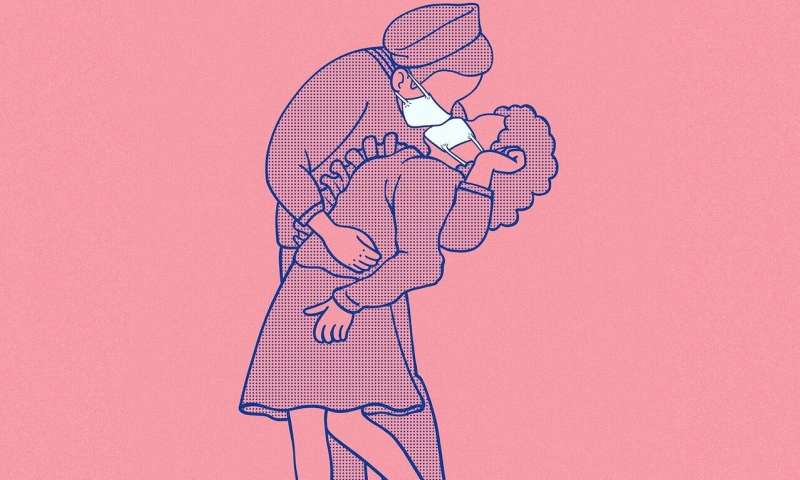Distributing a COVID-19 vaccine raises complex ethical issues

With something in the order of 150 COVID-19 vaccine candidates now in different stages of testing and development, a global public health strategy needs to be thinking several steps ahead, beyond the science. Once a vaccine is proven safe and effective, how will it reach everyone in the world who needs it, and on what kind of timeline?
Johns Hopkins bioethicist Ruth Faden is working to address these high-stakes issues as a member of the World Health Organization’s COVID-19 Vaccines Working Group, a team of experts from different countries making recommendations on fair and equitable global access to a coronavirus vaccine. Faden, founder of the Johns Hopkins Berman Institute of Bioethics, is focused on the ethical questions of vaccine distribution, a particularly delicate and complex angle.
“There are going to be many complicated issues for us to understand and address,” Faden says. “Hopefully this committee, along with other groups, will contribute to solutions for this massive geopolitical challenge: Ensuring that all people, regardless of where in the world they live, will have the benefit of a COVID-19 vaccine.”
Faden recently spoke with the Hub to share insights on these topics.
What are some of the biggest ethical issues to consider right now with COVID-19 vaccines?
First we have to look at the global level. The private sector is really driving the vaccine development process, rather than government or academic labs. Major efforts are underway to figure out how private industrial developers can make vaccines available at an affordable price to all countries, particularly low and middle-income countries. It’s a bit like the ventilator supply situation we’ve all faced, but on steroids. Initially there will be scarce supply of the vaccine, governments will be scrambling to procure it, and, unless these efforts work, the winners will be fairly predictable: countries that have the resources.
On the next level, some wealthy countries will likely end up with substantial amounts of vaccine. Over time, if all goes well, these countries will have to decide how much product they’re going to keep and how much, if any, they’re willing to share with other countries where the vaccine may be in very short supply. These are complex questions of ethics, and they’re wrapped up in geopolitics, and also national politics.
There’s a term called vaccine nationalism—where countries understand their obligations to be primarily, if not exclusively, to their own residents. Although there is an expectation that countries with the resources and production capacity will meet their own health needs first, should they ignore the needs of people living in other countries with severe economic constraints? From an ethics perspective, a balance must be struck.
How can there be resolutions for issues this complex?
Each country will be setting up its own processes, but in a worldwide pandemic you need intergovernmental global commitments to ensure the process is reasonable and fair. WHO is participating in something called the ACT [Access to COVID-19 Tools] Accelerator, a collaboration between major global health actors to oversee development of coronavirus health technologies, including vaccines, and to help ensure equitable global access. The recommendations of my committee will be feeding into this process through WHO.
One of the many reasons why it is deeply wrong for the U.S. to have withdrawn funding from the WHO, especially now, is the critical role that the WHO is playing in working to secure global access to a COVID-19 vaccine. Fortunately, despite that decision, many connections remain between WHO and the U.S. scientific and public health communities. And U.S.–based philanthropies are also playing a major role.
In addition to the global level, there are questions at the national level of how countries should distribute the vaccines to their own residents.
At one level, it seems obvious that the main public health objective with a COVID-19 vaccine is to get the pandemic under control. But this pandemic has many sides. Should we focus on the public health crisis, the social crisis, or the economic crisis? Or will fixing the first take care of the other two?
One certainty is that whenever a vaccine becomes available, there’s going to be way less of it than there will be people who need it—it’s a given, even under the best circumstances.
Essential workers are usually considered a top priority for vaccines, but not only because they often face elevated risks. The reason these people are considered essential is that, unless they do their jobs, society can’t function. From an ethical sense, we also owe them something for taking increased risks for the sake of others. But you can begin to imagine the complications here. What jobs should be included under the category of “essential worker,” and how many people will that include? Should health care workers come before food workers?
Also high on the priority list are those who are most at risk medically—the people most likely to suffer serious illness and death if they become infected. We know age is a significant risk factor for COVID-19, and many vaccine developers are keen to determine how effective their vaccines are for this population. Some other risk factors may vary country by country; for example, in the U.S., we’re seeing obesity having a major impact.
One thing we know about pandemics is that the poorest and least powerful in society get hurt the most. In the U.S., we’ve seen that happening in this pandemic with people of color, who are experiencing disproportionately high rates of infections and deaths for reasons rooted in longstanding structural injustices. There is an important conversation to be had about whether, as a part of the much overdue racial reckoning in the U.S., we should consider putting people of color high on the list for vaccine priority in the early days.
Do you think public expectations for a vaccine are realistic?
All of our lives have been compromised in so many ways in this pandemic, with so many aspects of our well-being negatively affected. Very often we hear that normalcy will only return once we have a vaccine. It’s considered the magic bullet that has to not only stop the terrible health burden of this disease but also restore society and make us sane again. People will be able to go to work and a football game, see their grandparents, and go on an airplane; the stock market will improve. It’s probably as high stakes as it could be.
Source: Read Full Article



